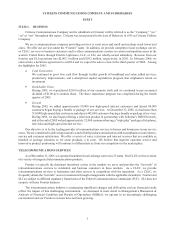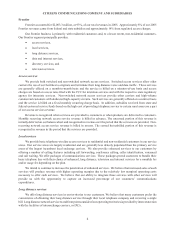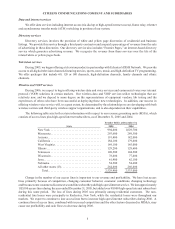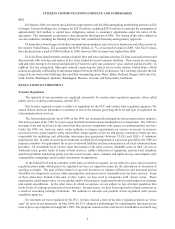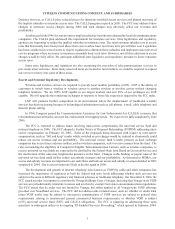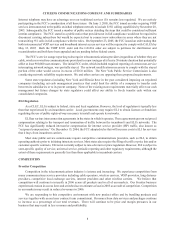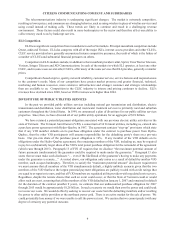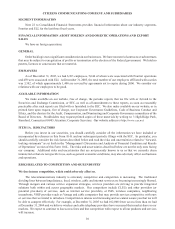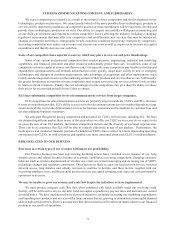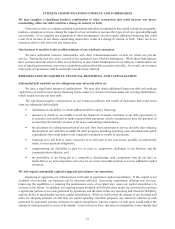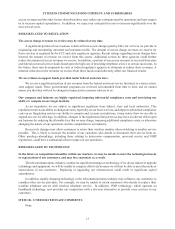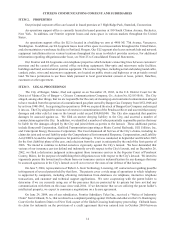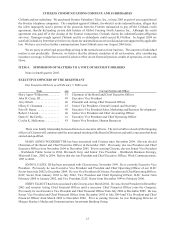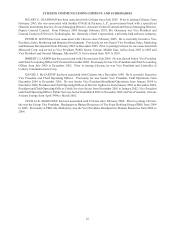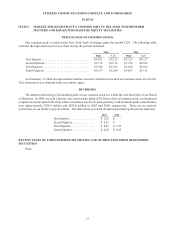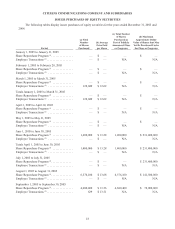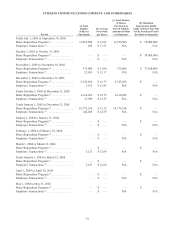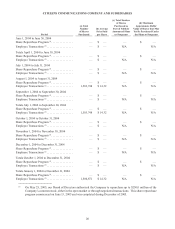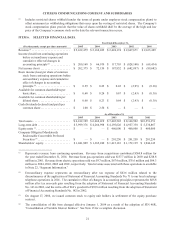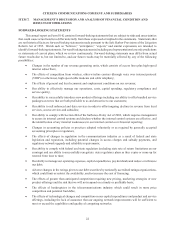Frontier Communications 2005 Annual Report Download - page 15
Download and view the complete annual report
Please find page 15 of the 2005 Frontier Communications annual report below. You can navigate through the pages in the report by either clicking on the pages listed below, or by using the keyword search tool below to find specific information within the annual report.13
CITIZENS COMMUNICATIONS COMPANY AND SUBSIDIARIES
access revenues and the other factors described above may reduce our cash generated by operations and may require
us to increase capital expenditures. In addition, we expect our cash paid for taxes to increase significantly over the
next several years.
RISKS RELATED TO REGULATION
The access charge revenues we receive may be reduced at any time.
A significant portion of our revenues is derived from access charges paid by IXCs for services we provide in
originating and terminating intrastate and interstate traffic. The amount of access charge revenues we receive for
these services is regulated by the FCC and state regulatory agencies. Recent rulings regarding access charges have
lowered the amount of revenue we receive from this source. Additional actions by these agencies could further
reduce the amount of access revenues we receive. In addition, a portion of our access revenues is received from state
and federal universal service funds based upon the high cost of providing telephone service to certain rural areas. In
the future, there may be proposals by state or federal regulatory agencies to eliminate or reduce these revenues. A
material reduction in the revenues we receive from these funds would adversely affect our financial results.
We are reliant on support funds provided under federal and state laws.
We receive a significant portion of our revenues from the federal universal service fund and, to a lesser extent,
state support funds. These governmental programs are reviewed and amended from time to time, and we cannot
assure you that they will not be changed or impacted in a manner adverse to us.
Our company and industry are highly regulated, imposing substantial compliance costs and restricting our
ability to compete in our target markets.
As an incumbent, we are subject to significant regulation from federal, state and local authorities. This
regulation restricts our ability to change our rates, especially on our basic services, and imposes substantial compliance
costs on us. Regulation restricts our ability to compete and, in some jurisdictions, it may restrict how we are able to
expand our service offerings. In addition, changes to the regulations that govern us may have an adverse effect upon
our business by reducing the allowable fees that we may charge, imposing additional compliance costs, or otherwise
changing the nature of our operations and the competition in our industry.
Recent rule changes now allow customers to retain their wireline number when switching to another service
provider. This is likely to increase the number of our customers who decide to disconnect their service from us.
Other pending rulemakings, including those relating to intercarrier compensation, universal service and VOIP
regulations, could have a substantial adverse impact on our operations.
RISKS RELATED TO TECHNOLOGY
In the future as competition intensifies within our markets, we may be unable to meet the technological needs
or expectations of our customers, and may lose customers as a result.
The telecommunications industry is subject to significant changes in technology. If we do not replace or upgrade
technology and equipment, we will be unable to compete effectively because we will not be able to meet the needs or
expectations of our customers. Replacing or upgrading our infrastructure could result in significant capital
expenditures.
In addition, rapidly changing technology in the telecommunications industry may influence our customers to
consider other service providers. For example, we may be unable to retain customers who decide to replace their
wireline telephone service with wireless telephone service. In addition, VOIP technology, which operates on
broadband technology, now provides our competitors with a low-cost alternative to provide voice services to our
customers.
ITEM 1B. UNRESOLVED STAFF COMMENTS
None.


